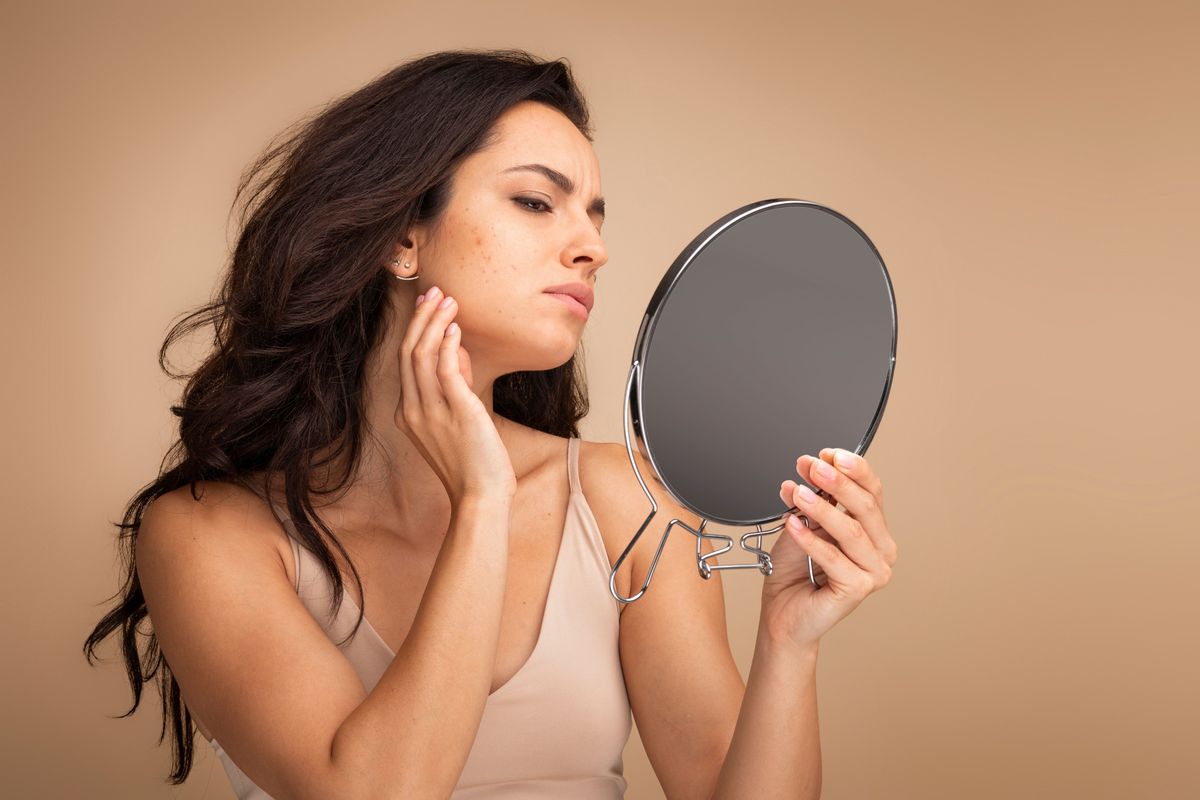Skin deep: the toll acne takes
Acne impacts 9.4% of the world's population, and its effects reach far beyond the surface

Amina Baig

Acne can impact a person's mental health and their ability to function in daily life.
Shutterstock
Of all the things people are told they should or shouldn't be, being 'concerned about how they look' is possibly the most frowned upon, even while impossible beauty standards are constantly being set.
Vanity may not be a virtue, but only someone who has suffered from acne—whether in adolescence or adulthood—can truly describe how deeply it has affected their life.
Acne affects 9.4% of the world's population — roughly 752 million people, a significant portion of humanity, and if that number seems insignificant, consider that the figure translates to roughly 752 million, which is a lot of people. Though we can't precisely measure the severity of acne in these 752 million people, it's safe to assume it’s significant—enough to warrant global studies.
"Our loved ones aren't looking for us to identify all our problems and give us unsolicited comments. They are looking for love, connection, belonging, and safety. We don't have to point out someone's skin colour or weight or acne. We can focus on their kindness, or achievements or something else that stands out and makes them unique and beautiful. Build your people up. Don't break them down." - Sharmeen Khan, Psychologist and Cofounder at Be Me
Living with acne can be challenging on many levels. Firstly, you have to look at yourself in the mirror and notice how your skin is doing on any given day. Secondly, sometimes, depending on severity, the acne may be painful. Thirdly, there's always someone reminding you to 'be grateful it's just acne' and to think of those with more serious conditions.
Acne is more than a physical condition

"[Suffering from acne] often leads to unsolicited advice and taunting from those close to us— "tumse shadi kaun karega," etc.," says Sharmeen Khan, Psychologist and Co-founder at Be Me, a mental health app.
"It even features into our mass media with advertisements showing people - especially women - with skin issues not getting the job they want or losing out in life," says Khan.
What causes acne?
Acne isn't just a hiccup we face while growing up; it can occur at any stage of life.
Dr. Asma Bilal Gardezi, Consultant Dermatologist at Aga Khan Hospital, Kharader, and CACI Centre, Karachi says that adolescent and adult onset acne occur for the same reasons.
"Acne can occur due to direct and indirect causes," says Dr. Gardezi.
"Direct reasons include: excess oil production, bacteria, and inflammation. Indirect causes include factors that make skin oily, such as hormones, stress, and the menstrual cycle," she says.
She also lists certain medications like steroid, and comedogenic makeup, oils, and hair products that are greasy as acne triggers.
Is acne curable?

"There are skin conditions which can be chronic in nature like eczema, psoriasis, or urticaria, but luckily acne is not one of them," says Dr. Gardezi.
"Oral isotretinoin is the gold standard for treating moderate to severe acne but must be prescribed with caution due to its teratogenic effects," she says. "Spironolactone is effective for treating hormonally-driven acne."
Dr. Gardezi also lists topical tretinoin, benzoyl peroxide, topical clindamycin, salicylic acid or looking into treatments such as chemical peels or light therapy.
Apart from medication, Dr. Gardezi advises lifestyle changes, such as ensuring diet is low in sugar, carbohydrates, soda, high fats; making time for exercise, and finding ways to manage stress.
The emotional impact of acne
"It can impact a person's self confidence and capacity to operate in daily life," says Sharmeen Khan. "Keeping this in mind, it is important to be more mindful of our interactions with others. Our loved ones aren't looking for us to identify all our problems and give us unsolicited comments. They are looking for love, connection, belonging, and safety. We don't have to point out someone's skin colour or weight or acne, we can focus on their kindness, or achievements or something else that stands out and makes them unique and beautiful. Build your people up. Don't break them down."







Comments
See what people are discussing